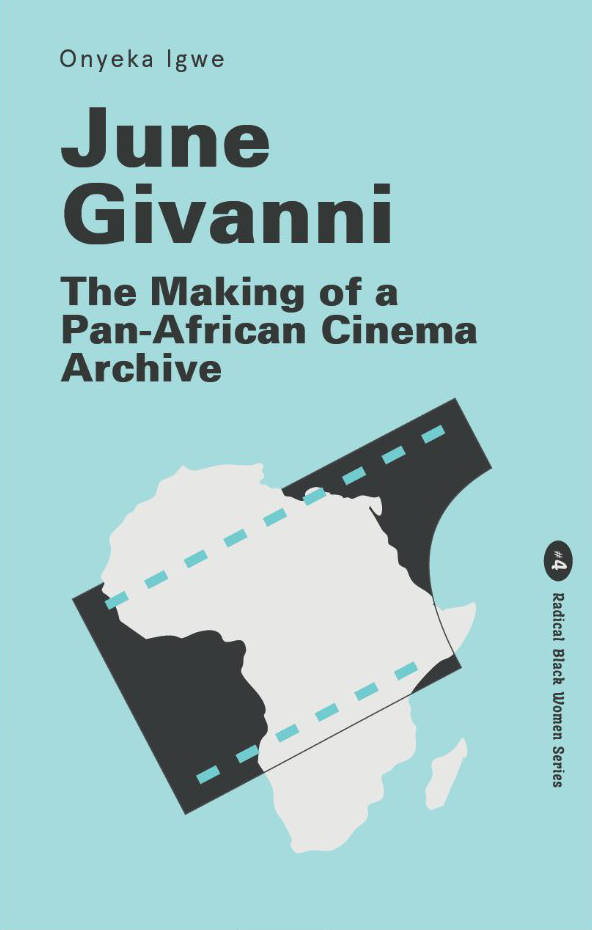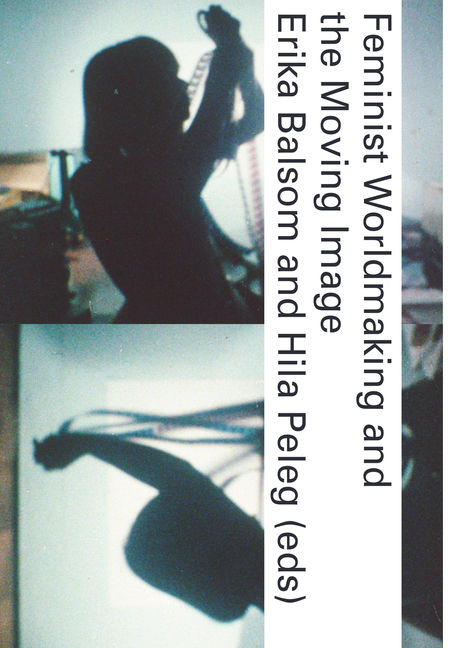Onyeka Igwe
Onyeka Igwe

June Givanni: The Making of a Pan-African Cinema Archive
A journey through the archive of BAFTA award-winning curator and film programmer, June Givanni. This private collection made public contains thousands of films from across Africa, the Caribbean and the diaspora amassed in a career spanning more than forty years. Using oral history interviews and ephemera from four film festivals as her touchstones, author Onyeka Igwe offers a way to encounter Pan-African film through the archive.
The book starts with Third Eye, the film festival that propelled June into a career in Pan-African cinema. Through connections she made there, she travelled to FESPACO in 1985. Participating in the festival while Ouagadougou, Burkina Faso was under the leadership of revolutionary Thomas Sankara was a formative experience. In Ouagadougou she connected with film programmers Suzy Landau and Claire Andrade Watkins, who would take steps to organise Images Caraïbes, Fort de France, Martinique, 1988, and Celebration of Black Cinema, Boston, US.
Using original oral history research with June and other key figures in Pan-African and Black British cinema, Onyeka uncovers the important role that women festival organisers, programmers and cultural workers have played in Pan-African cinema history. She conceptualises June Givanni’s Pan-African Cinema Archive (JGPACA) as a feminist counter archive that foregrounds marginalised histories and proposes a radical approach to archiving itself. In tracing and naming the cinematic legacies that ground political filmmaking practices today, she preserves June’s work, knowledge and fervour for Pan African cinema for future generations.
And more

Feminist Worldmaking and the Moving Image
This book offers intersectional, intergenerational, and international perspectives on nonfiction film- and videomaking by and about women, examining practices that range from activist documentaries to avant-garde experiments. Concentrating primarily on the period between the 1970s and 1990s, the contributions revisit major figures, contexts, and debates across a polycentric, global geography. They explore how the moving image has been a crucial terrain of feminist struggle—a way of not only picturing the world but remaking it.
The contributors consider key decolonial filmmakers, including Trinh T. Minh-ha and Sarah Maldoror; explore collectively produced films with ties to women's liberation movements in different countries; and investigate the cinematic expressions of tensions and alliances between feminism and anti-imperialist struggles. They grapple with the need for a broader more inclusive definition of the term "feminism"; meditate on the figure of the grandmother; reflect on realist aesthetics; and ask what a feminist film historiography might look like.
The book, generously illustrated with film stills and other images, many in color, offers ten original texts, two conversations, and eight short essays composed in response to historical texts written by filmmakers. The historical texts, half of which are published in English for the first time, appear alongside the essays.
Contributors
Helena Amiradżibi, Madeleine Bernstorff, Teresa Castro, Counter Encounters (Laura Huertas Millán, Onyeka Igwe, Rachael Rakes), Ayanna Dozier, Forough Farrokhzad, Safi Faye, Devika Girish, Elena Gorfinkel, Haneda Sumiko, Shai Heredia, Juliet Jacques, Sarah Keller, Nzingha Kendall, Julia Lesage, Beatrice Loayza, Janaína Oliveira, Lakshmi Padmanabhan, Yasmina Price, Elizabeth Ramírez-Soto, Pooja Rangan, Lis Rhodes, Sara Saljoughi, Rasha Salti, Isabel Seguí, Chick Strand, Monika Talarczyk, Trinh T. Minh-ha, Françoise Vergès, Claudia von Alemann, Mitsuyo Wada-Marciano, Shilyh Warren, Giovanna Zapperi